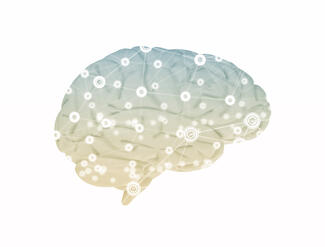Shaping the Future of Schizophrenia Care With Muscarinic-Targeting Treatments
In this video, Psych Congress Steering Committee Member Brooke Kempf, PMHNP-BC, discusses how the development of muscarinic-targeting treatments is shaping the future of schizophrenia care. Using xanomeline-trospium as an example, Kempf outlines how these novel treatment options offer clinicians the opportunity to target negative and cognitive symptoms of schizophrenia, filling previously unmet clinical needs. This, Kempf believes, sets the precedent for a new treatment paradigm—one that is conducive to producing better patient outcomes.
For more expert insights, visit the Schizophrenia Excellence Forum.
Brooke Kempf, PMHNP-BC: Hi there, my name is Brooke Kempf. I'm a psychiatric mental health nurse practitioner out of Terre Haute, Indiana. I'm an adjunct faculty at Indiana University of Indianapolis, and I'm a member of the Steering Committee for Psych Congress.
Psych Congress Network: Xanomeline showed promise in improving psychosis and cognitive dysfunction but was limited by peripheral side effects. How has our understanding of these adverse effects shaped the next generation of muscarinic-targeting treatments?
Kempf: We know that xanomeline showed positive benefits in reducing psychosis and improving cognitive symptoms in Alzheimer disorder. However, the side effect tolerability was not manageable. We continued to study this, and we found that we could agonize and increase acetylcholine using xanomeline, but by utilizing an anticholinergic with the addition of trospium, we were able to mitigate the cholinergic side effects that were associated with xanomeline, therefore having a combination treatment that now has been approved to treat schizophrenia.
PCN: How do you see the EMERGENT trial findings—particularly the cognitive data and favorable side effect profile—shaping the future role of muscarinic-targeting treatments like xanomeline-trospium in schizophrenia care?
Kempf: I believe when it comes to new treatment options like xanomeline and trospium, we're now to a level where we are going to treat a full spectrum of schizophrenia—cognitive benefits, negative side effects treated, positive symptoms—where we have been focused on positive symptoms for decades now by blocking D2 receptors. This opens up a whole new treatment paradigm that we may have for patients with schizophrenia, and I think it's going to move us as clinicians closer to treating the whole patient. Not focusing just on decreasing hallucinations, treating delusions, we are going to treat the whole patient.
So those symptoms that have really prevented patients from functioning to their full capability, such as the negative symptoms or cognitive symptoms, we're able to target those symptoms now with new treatment options. I think we're going to be more demanding of our treatments now to expect this type of outcome. I think with these new treatment options we're going to learn how to utilize those with our current options that we've been using. We'll have great combination therapies, I'm hopeful, but at the end of the day, it's going to turn to better patient outcomes.
I thank you so much for joining me today. Please check back in with us so that we can give you more practical, clinical guidance to help you better serve your patients.
Brooke Kempf, MSN, PMHNP-BC, has worked as a psychiatric nurse at Hamilton Center in Terre Haute, Indiana, since she graduated from Indiana State University with an associate degree in 1994. Her passion for mental health was sparked as she worked as a charge nurse on the Inpatient Unit and continued to grow as she served in their outpatient setting while obtaining her bachelor’s degree from ISU in 1996. She was awarded the 2008 Hamilton Award for Outstanding Staff Member. Kempf was then able to obtain her master’s degree from the State University at Stony Brook of New York and is board-certified by the ANCC as a psychiatric mental health nurse practitioner. She currently practices as the Hospitalist for the Inpatient Psychiatric Unit of Hamilton Center Community Mental Health Center in Terre Haute, Indiana and is an adjunct lecturer for IUPUI’s PMHNP program, teaching and was awarded the 2022 Daisy Award for Extraordinary Nursing Faculty.
© 2025 HMP Global. All Rights Reserved.
Any views and opinions expressed above are those of the author(s) and do not necessarily reflect the views, policy, or position of the Psych Congress Network or HMP Global, their employees, and affiliates.


















